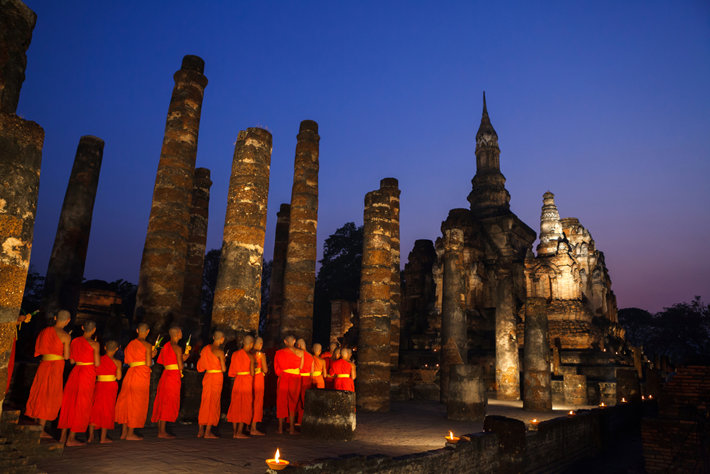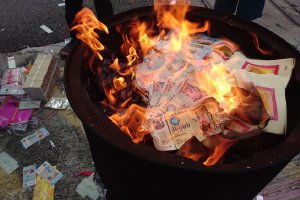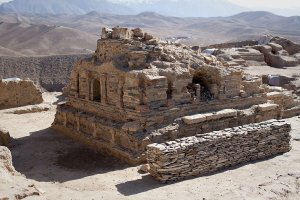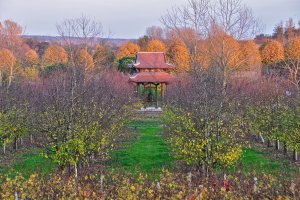Thousands of Buddhists in Thailand celebrated one of Buddhism’s holiest days, Makha Bucha. It marks the faith’s first major festival of the year in celebration of what is believed to be a gathering of the Buddha’s first disciples who later became monks and spread the religion’s principles.

The devotees congregated on the full moon day of March 6 at Buddhist temples across Thailand. One of the most significant gatherings was at the Wat Phra Dhammakaya temple in Pathum Thani province on the outskirts of Bangkok.
Makha Bucha, also known as Magha Puja, is Thailand’s “National Gratitude Day.” Devotees make offerings at temples, thereby purifying their life through good deeds.
Buddhist monks carried lit candles and flowers as they walked around the Wat Phra Dhammakaya temple and received offerings from people during an alms-giving ceremony.
Tradition has it that as many as 1,250 of the Buddha’s disciples paid him an unexpected visit at the bamboo grove known as Veluvana in Kajangala, an ancient town in present-day West Bengal.
Each of the 1,250 disciples is said to have been an “arahant”—an enlightened being who realized the true nature of existence and was ordained by the Buddha himself.
The Thai-language word “Makha” derives from “Magha” in the ancient Pali language, in which texts of the Theravada school of Buddhism are written. “Bucha,” too, is Thai, rooted in “Puja,” the Pali-language word that means “to venerate” or “to honor.”
In the Thai language, Makha refers to the third lunar month in the Buddhist calendar. In fact, the festival is always celebrated on a full moon day in the third lunar month—historically seven months after the early gathering of the Buddha’s disciples. And not just in Thailand but also in other predominantly Buddhist countries such as Cambodia, Burma (Myanmar) and Sri Lanka.
_______________
From its beginnings, the Church of Scientology has recognized that freedom of religion is a fundamental human right. In a world where conflicts are often traceable to intolerance of others’ religious beliefs and practices, the Church has, for more than 50 years, made the preservation of religious liberty an overriding concern.
The Church publishes this blog to help create a better understanding of the freedom of religion and belief and provide news on religious freedom and issues affecting this freedom around the world.
The Founder of the Scientology religion is L. Ron Hubbard and Mr. David Miscavige is the religion’s ecclesiastical leader.
For more information visit the Scientology website or Scientology Network.


